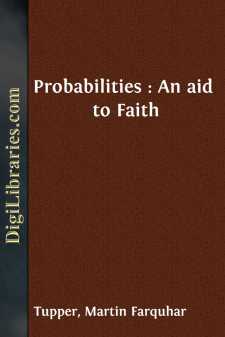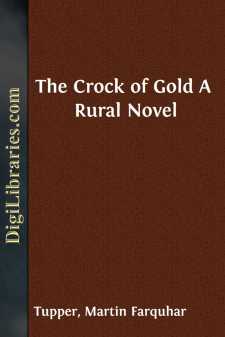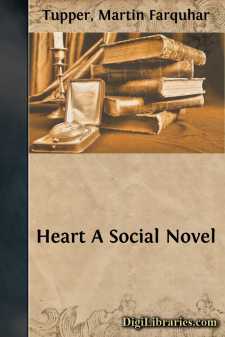Categories
- Antiques & Collectibles 13
- Architecture 36
- Art 48
- Bibles 22
- Biography & Autobiography 816
- Body, Mind & Spirit 145
- Business & Economics 28
- Children's Books 18
- Children's Fiction 14
- Computers 4
- Cooking 94
- Crafts & Hobbies 4
- Drama 346
- Education 58
- Family & Relationships 59
- Fiction 11834
- Foreign Language Study 3
- Games 19
- Gardening 17
- Health & Fitness 34
- History 1378
- House & Home 1
- Humor 147
- Juvenile Fiction 1873
- Juvenile Nonfiction 202
- Language Arts & Disciplines 89
- Law 16
- Literary Collections 686
- Literary Criticism 179
- Mathematics 13
- Medical 41
- Music 40
- Nature 179
- Non-Classifiable 1768
- Performing Arts 7
- Periodicals 1453
- Philosophy 66
- Photography 2
- Poetry 897
- Political Science 203
- Psychology 45
- Reference 154
- Religion 516
- Science 126
- Self-Help 86
- Social Science 82
- Sports & Recreation 34
- Study Aids 3
- Technology & Engineering 59
- Transportation 23
- Travel 463
- True Crime 29
Our website is made possible by displaying online advertisements to our visitors.
Please consider supporting us by disabling your ad blocker.
Probabilities : An aid to Faith
Categories:
Description:
Excerpt
AN AID TO FAITH.
The certainty of those things which most surely are believed among us, is a matter quite distinct from their antecedent probability or improbability. We know, and take for facts, that Cromwell and Napoleon existed, and are persuaded that their characters and lives were such as history reports them: but it is another thing, and one eminently calculated to disturb any disbeliever of such history, if a man were enabled to show, that, from the condition of social anarchy, there was an antecedent likelihood for the use of military despots; that, from the condition of a popular puritanism, or a popular infidelity, it was previously to have been expected that such leaders should have the several characteristics of a bigoted zeal for religion, or a craving appetite for worldly glory; that, from the condition liable to revolutions, it was probable to find such despots arising out of the middle class; and that, from the condition of reaction incidental to all human violences, there was a clear expectability that the power of such military monarchs should not be continued to their natural heirs.
Such a line of argument, although in no measure required for the corroboration of facts, might have considerable power to persuade à priori the man, who had not hitherto seen reason to credit such facts from posterior evidence. It would have rolled away a great stone, which to such a mind might otherwise have stood as a stumbling-block on the very threshold of truth. It would have cleared off a heavy mist, which might prevent him from discerning the real nature of the scene in which he stood. It would have shown him that, what others know to be fact, is, even to him who does not know it, become antecedently probable; and that Reason is not only no enemy to Faith, but is ready and willing to acknowledge its alliance.
Take a second illustration, by way of preliminary. A woodman, cleaving an oak, finds an iron ball in its centre; he sees the fact, and of course believes; some others believing on his testimony. But a certain village-pundit, habitually sceptical of all marvels, is persuaded that the wonder has been fabricated by our honest woodman; until the parson, a good historian, coming round that way, proclaims it a most interesting circumstance, because it was one naturally to have been expected; for that, here was the spot where, two hundred years ago, a great battle had been fought: and it was no improbability at all that a carbine-bullet should have penetrated a sapling, nor that the tree should thereafter have grown old with the iron at its heart. How unreasonable then would appear the pundit's incredulity, if persisted in: how suddenly enlightened the rational faith of the rustic: how seasonable would be felt the useful learning of him, whose knowledge well applied can thus unfetter truth from the bandages of ignorance.
Illustrations, if apt, are so well adapted to persuade towards a particular line of argument, that, at the risk of diffuseness, and because minds being various are variously touched, one by one thought and one by another, I think fit to add yet more of a similar tendency: in the hope that, by a natural induction, such instances may smoothe our way.
When an eminent living geologist was prosecuting his researches at Kirkdale cave, Yorkshire, he had calculated so nicely on the antecedent probabilities, that his commands to the labourers were substantially these: "Take your mattocks, and pick up that stone flooring; then take your basket, and fill it—with the bones of hyænas and other creatures which you will find there." We may fancy the ridicule wherewith ignorance might have greeted science: but lo, the triumph of philosophy, when its mandate soon assumed a bodily shape in—bushels of bones gnawed as by wild beasts, and here and there a grinning skull that looked like a hyæna's! Do we not see how this bears on our coming argument? Such a deposit was very unlikely to be found there in the eyes of the unenlightened: but very likely to the wise man's ken. The real probabilities were in favour of a strange fact, though the seeming probabilities were against it.
Take another. We are all now convinced of the existence of America; and so, some three or four hundred years back, was Christopher Columbus—but nobody else. Alone, he proved that mighty continent so probable, from geometrical measurements, and the balance of the world, and tides, and trade-winds, and casual floatsams driven from some land beneath the setting sun, that he was antecedently convinced of the fact: and it would have been a shock to his reason, as well as to his faith, had he found himself able to sail due west from Lisbon to China, without having struck against his huge probability. I purposely abstain from applying every illustration, or showing its specific difference regarding our theme. It is better to lead a mind to think for itself than to endeavour to forestall every notion.
Another. A Kissoor merchant in Timbuctoo is told of the existence of water hard and cold as marble....






